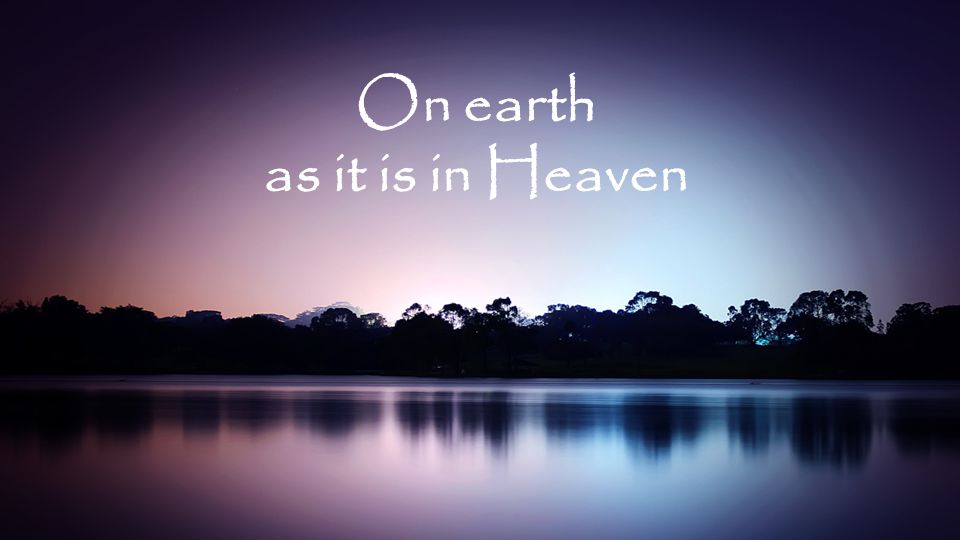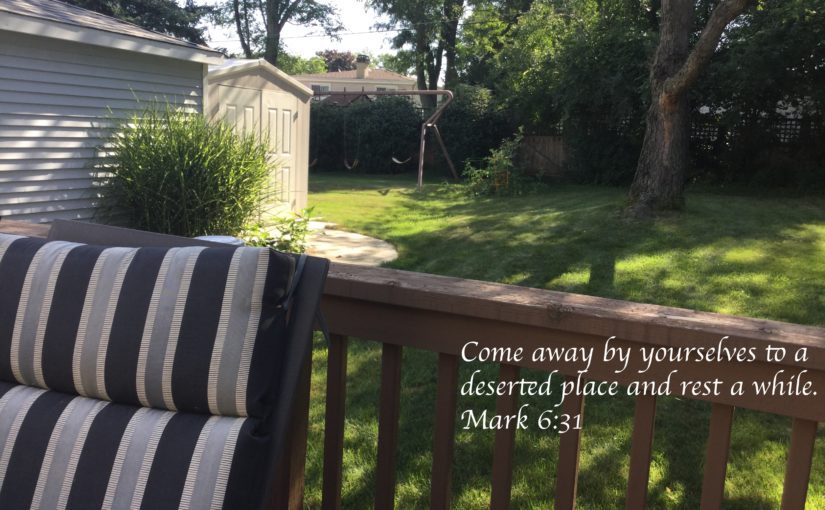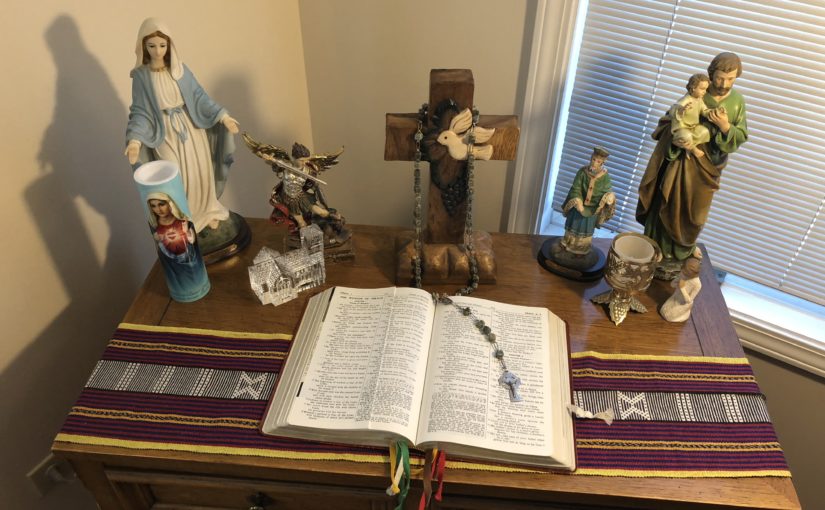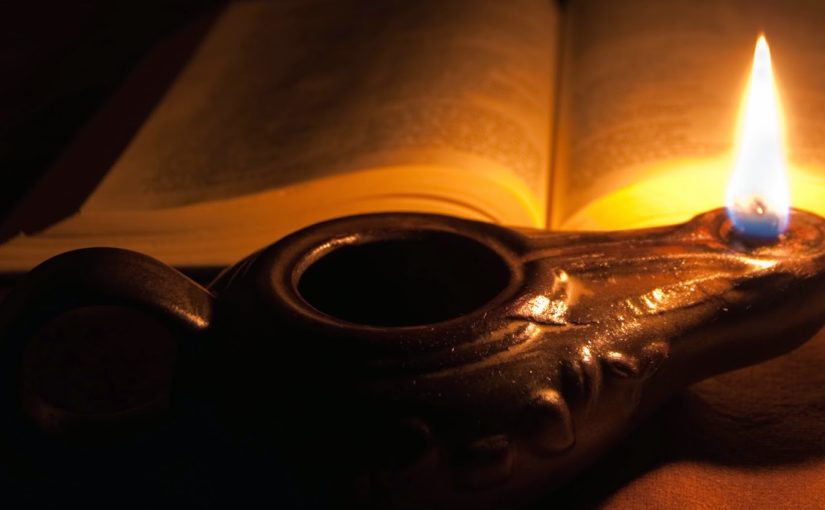Today’s readings
So today our Gospel, at the end of it, talks to us a bit about what prayer looks like. And that reminds me of one of my favorite little stories.
So this person was not a real person of faith, but they were going through some hard times. So since everything else she tried didn’t work, she decided to pray about it. Not knowing really where to start, she reached for the old Bible that was up on a shelf in her room, took it down and dusted it off. She said, “Okay God, I need to hear you tell me how to fix this situation.” So she decided to point to a verse and see if that was God’s answer. She opened up the Bible and did just that and then read it: “And Judas went out and hanged himself.” That was pretty horrifying, and she didn’t think that could possibly be what God was telling her, so she decided to try again. Opening to a different place, she read the verse: “Go thou and do likewise.” Now it was getting personal, but she decided to try one more time: “Go and do quickly what you must do.”
I have to say, when the Scriptures talk about prayer, I get a little uneasy. Not because I don’t like to pray, or think prayer is a bad thing. But more because I think mostly we misunderstand prayer, and usually a brief mention in the readings like we have today can do more harm than good. The line almost at the end of the Gospel reading is the culprit: “if two of you agree on earth about anything for which they are to pray, it shall be granted to them by my heavenly Father.”
Really? Anything? I don’t know about you, but I personally can think of examples – plenty of examples – of times where I had prayed with friends or family for something and ended up not getting it. You can probably think of examples too. People tell me all the time, “Father, I have prayed and prayed about (fill in the blank), and I never get any answer, it doesn’t seem like God even hears me.” Have you ever thought that? Lots of us have. So what are we to make of this? Why would Jesus make a promise like that if he wasn’t prepared to deliver on it? Well, I’d like to make three points about prayer that maybe will help with that conundrum.
First, in the line right after this, Jesus says, “For where two or three are gathered together in my name, there am I in the midst of them.” Notice how he says, “in my name.” So it’s not like a couple of us can get together and pray for something crazy and hold God accountable for granting it. That would be absurd; I’m sure you realize that. If we’re gathered in anything less than the name of Jesus, we’re in the wrong place, and you don’t get what you want, or even what you need, when you’re in a place other than where Jesus is.
Second, reflecting on that same line, I would point out the last phrase: “there am I in the midst of them.” Sometimes God doesn’t answer all our prayers in the way we think he should, or in the way we would like him to. God isn’t a divine vending machine. But he definitely always answers them with his presence. Sometimes that leads to resolution of a problem that is greater than we could have imagined. Sometimes it makes us a stronger, more faith-filled person. And sometimes the answer to a prayer means that we are the ones who have to change, not the situation, or the other people, or whatever is going on. So the abiding presence of our God, most perfectly experienced in community, when two are three are gathered in his name, is the most important answer to every prayer. And even if it’s the only answer, it surely is enough.
Finally – and I can’t say this often enough, nor stress it strongly enough – prayer is not a magic wand. You might read in this brief little passage that all you have to do is pray for something and you get it. “God help me win the lottery.” Not so fast. Prayer is always experienced in relationship: relationship with God and relationship with others. That’s why this brief little passage mentions praying together, and praying in Jesus’ name. Those are important points, and it’s best not to overlook them.
Prayer is a relationship, prayer is work – sometimes hard work, prayer is a way of life for the disciple of Jesus. We enter that relationship at our Baptism, and it’s our task as disciples to nurture that relationship our whole lives long.










You must be logged in to post a comment.